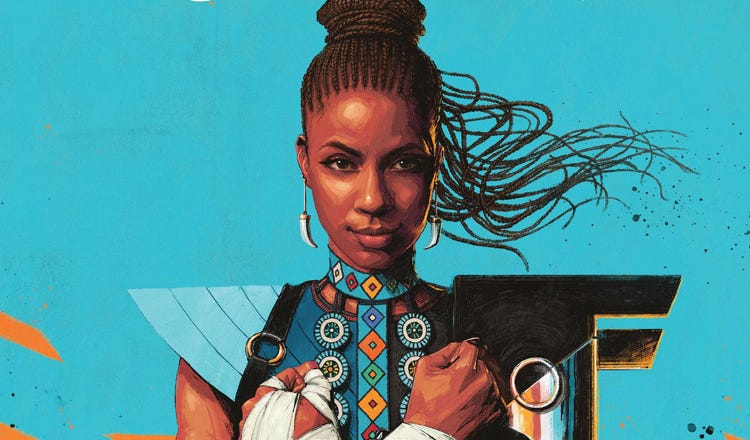
In recent decades, Afrofuturism has emerged as one of the most exciting and transformative movements in global literature. Combining elements of science fiction, fantasy, history, and culture, Afrofuturism reimagines the Black experience across time and space. At its heart, it uses speculative storytelling to challenge dominant narratives about race and identity, while envisioning new futures rooted in African and diasporic traditions. Writers like Octavia Butler, Nnedi Okorafor, and an expanding wave of contemporary voices are redefining what it means to tell Black stories, offering readers both escape and empowerment.
Defining Afrofuturism
The term “Afrofuturism” was first coined in the 1990s by cultural critic Mark Dery, but the concept itself predates the label. Afrofuturism blends science fiction, fantasy, and speculative elements with African and African diasporic histories, cultures, and philosophies. It seeks to reframe how Black people are represented in narratives of the past, present, and future.
In a world where mainstream science fiction historically excluded Black characters or relegated them to stereotypes, Afrofuturism carves out space for Black people not just to exist, but to thrive in imagined futures. It challenges the erasure of Black voices in technology, space exploration, and futurism, reminding us that innovation and imagination are not limited by race.
Octavia Butler: The Mother of Afrofuturism
No discussion of Afrofuturism in literature is complete without Octavia E. Butler. Her groundbreaking novels—such as Kindred (1979), Parable of the Sower (1993), and Dawn (1987)—not only placed Black women at the center of speculative fiction but also addressed complex themes of power, survival, and adaptation.
In Kindred, Butler intertwined time travel with the history of slavery, forcing her protagonist—and her readers—to confront the realities of oppression across centuries. In her Parable series, she imagined a dystopian America torn by inequality, with a visionary Black female leader at its center. Butler’s work continues to resonate because it combines deeply human questions with speculative frameworks, proving that Black narratives belong at the core of futuristic storytelling.
Nnedi Okorafor and the Rise of Africanfuturism
While Butler paved the way, contemporary writers have expanded Afrofuturism in new directions. Nigerian-American author Nnedi Okorafor coined the term “Africanfuturism” to describe her work, which centers African settings, cultures, and mythologies rather than focusing solely on the diaspora.
Her novels—such as Who Fears Death (2010), Binti (2015), and Akata Witch (2011)—blend science fiction with African folklore, creating richly textured worlds where African traditions inform futuristic societies. In Binti, for instance, the protagonist is a Himba girl from Namibia who becomes the first of her people to attend an intergalactic university, bringing her culture with her into space.
Okorafor’s storytelling challenges the Western dominance of science fiction and creates a bridge between African heritage and imagined futures. By rooting her narratives in African landscapes and identities, she expands the scope of Afrofuturism into truly global terrain.
New Voices in Afrofuturism
The 21st century has seen a surge of writers embracing Afrofuturism to tell stories that resonate with younger generations. Authors like:
Tomi Adeyemi, whose Children of Blood and Bone series (2018–) draws from Yoruba mythology while imagining a West African-inspired fantasy world.
Rivers Solomon, whose works like An Unkindness of Ghosts (2017) and The Deep (2019) explore themes of race, gender, and trauma in speculative contexts.
Tochi Onyebuchi, with novels such as Riot Baby (2020), which fuses superpowers with the realities of systemic racism in America.
N.K. Jemisin, a multiple Hugo Award winner, whose Broken Earth trilogy reshaped the fantasy genre while tackling oppression, survival, and ecological collapse.
These writers are diversifying Afrofuturism, each bringing unique perspectives to questions of race, identity, history, and the future.
Themes and Significance
Afrofuturism in literature is powerful because it is more than just science fiction—it is a cultural, political, and philosophical movement. Common themes include:
Reclaiming History: Works like Butler’s Kindred or Solomon’s The Deep revisit histories of slavery and oppression, ensuring that they are neither forgotten nor told exclusively through a colonial lens.
Imagining Empowered Futures: Afrofuturism insists on placing Black characters at the center of innovation, space exploration, and leadership, countering centuries of exclusion.
Blending Tradition and Technology: Many Afrofuturist works fuse African folklore, spirituality, and mythology with futuristic technology, challenging Western dichotomies of “primitive” vs. “advanced.”
Challenging Identity Norms: Afrofuturist literature often explores intersections of race, gender, sexuality, and class, offering fluid and complex representations of identity.
Resistance and Survival: Whether in dystopian worlds or intergalactic societies, Afrofuturist characters frequently embody resilience against oppressive forces, mirroring real-world struggles.
Afrofuturism Beyond Literature
Though literature is at its heart, Afrofuturism extends into music, visual art, and film. Musicians like Sun Ra and Janelle Monáe, films like Black Panther (2018), and visual artists across the African diaspora have drawn from Afrofuturist aesthetics to imagine new cultural possibilities. The cross-disciplinary nature of Afrofuturism strengthens its impact, creating a shared cultural language across mediums.
The Role of Publishing in Amplifying Afrofuturist Voices
Despite its growing popularity, Afrofuturism still faces challenges in publishing. Many mainstream publishers long overlooked speculative works by Black authors, assuming limited market appeal. That perception has shifted with the success of authors like Okorafor, Adeyemi, and Jemisin, but structural inequities persist.
Black-owned publishers, such as Black Tower Publishers, play a critical role in amplifying Afrofuturist voices. By prioritizing African American and diasporic writers, they provide platforms that challenge mainstream publishing’s biases. Independent Black-owned bookstores also serve as vital spaces for discovering and discussing Afrofuturist works, ensuring that they reach audiences hungry for stories that reflect diverse experiences.
Why Afrofuturism Matters Today
In an age marked by technological transformation, racial injustice, and ecological uncertainty, Afrofuturism feels especially urgent. It equips readers to imagine alternatives—futures where Black people not only survive but thrive, where histories of oppression are confronted and transcended, and where cultural heritage shapes tomorrow’s innovations.
By reimagining the Black experience, Afrofuturism offers readers both vision and validation. It insists that the future is not colorblind but enriched by the presence of Black imagination and creativity.
Conclusion: Imagining Tomorrow Through Afrofuturism
Afrofuturism in literature is not just a genre—it is a movement that reclaims the past, redefines the present, and reimagines the future. From Octavia Butler’s visionary works to Nnedi Okorafor’s Africanfuturist landscapes and the bold new voices of the 21st century, Afrofuturism demonstrates the boundless power of Black storytelling.
As Black-owned publishers and bookstores continue to amplify these voices, Afrofuturism is positioned to expand even further, shaping global conversations about race, identity, and possibility. The stories may be speculative, but their impact is very real—inviting us all to imagine a future where the Black experience is central, celebrated, and limitless.

